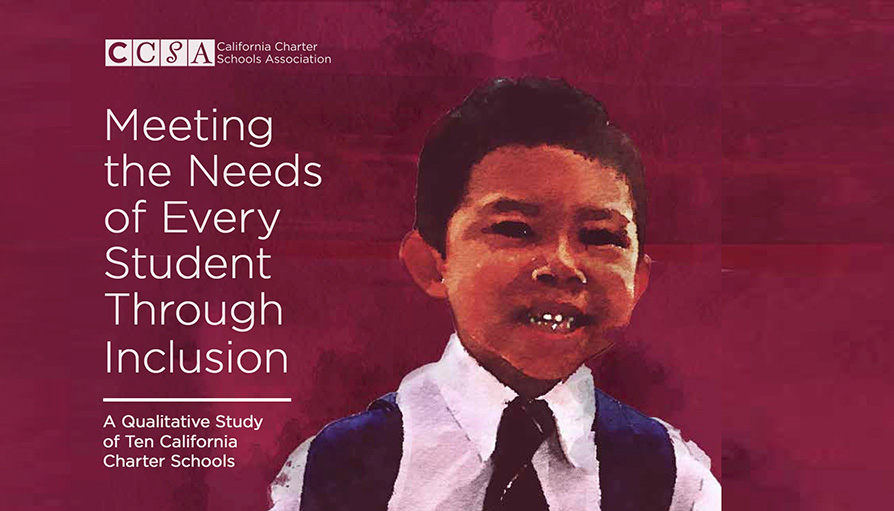Lindsay Coker, Program Specialist
The Center for Learner Equity
The California Charter Schools Association recently released a report detailing special education practices in 10 California charter schools. The schools examined are diverse in size, instructional model and student demographics, but all represent strong outcomes for students with disabilities. The report, Meeting the Needs of Every Student Through Inclusion, offers an in-depth look at the philosophies, practices, and policies that allow these schools to successfully educate students with disabilities. Inclusion of students with disabilities in general education classes along with non-disabled peers is highlighted as a best practice to achieve positive results.
The report highlighted the “why” the “what” and the “how” behind the schools’ practices in order to demonstrate what set them apart. Notably, common themes across the schools included an overall philosophy of embracing student differences, individualizing instruction and designing programs around the concept of inclusion. This philosophy was complemented by strong programmatic practices that include multi-tiered systems of supports, utilization of technology, data driven instruction and interventions, staff development, and leveraging relationships with families and communities. Finally, the autonomy of the schools facilitated the successful implementation of these practices. California requires charter schools to operate as their own local education agency (“LEA”) within a larger Special Education Local Plan Area or as an “LEA-like” school by contracting with their local school district to maintain funding and programmatic independence. This unique structure allows the schools to make decisions internally in order to utilize these philosophies and methodologies in the best way for their individual circumstances.
The findings present compelling evidence that when charters leverage their autonomy to be innovative in how they deliver special education, kids benefit. We encourage other state charter support organizations to invest in and prioritize highlighting these practices. By highlighting practices that lead to better outcomes for students with disabilities, students in both traditional and charter public schools stand to benefit.
Note: Both CHIME Institute and KIPP Raices, highlighted in the study, have participated in The Center for Learner Equity’ National CMO Special Education Network.

Comments are closed.